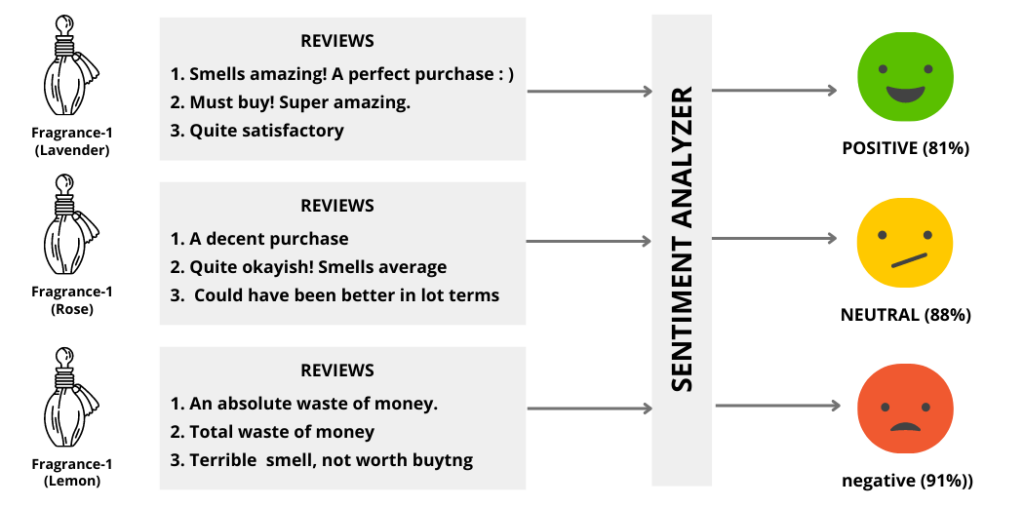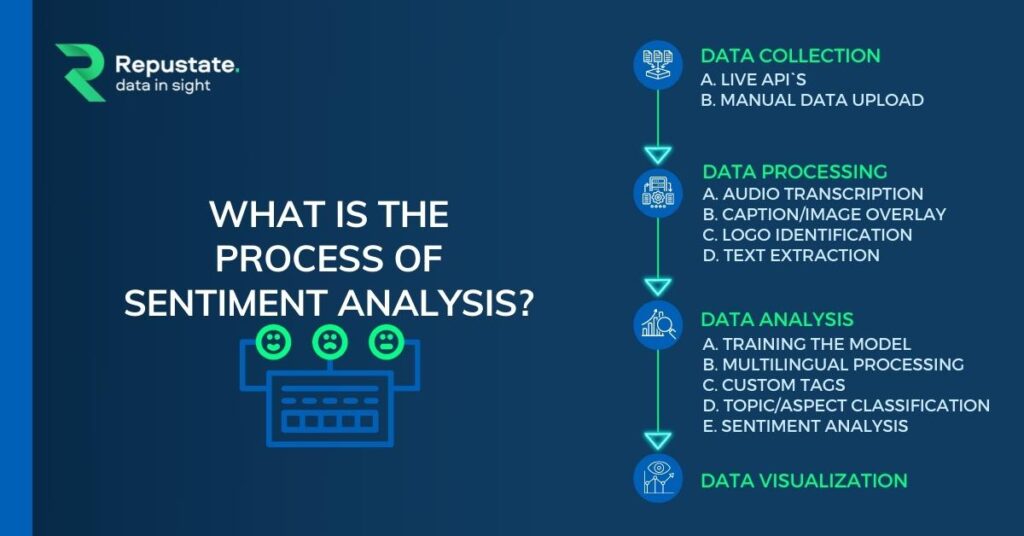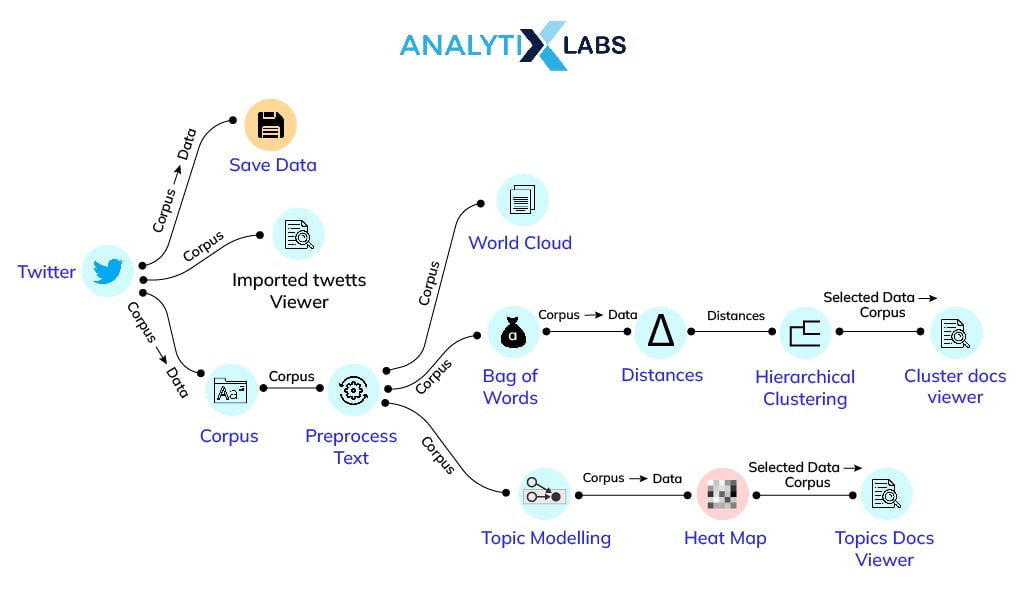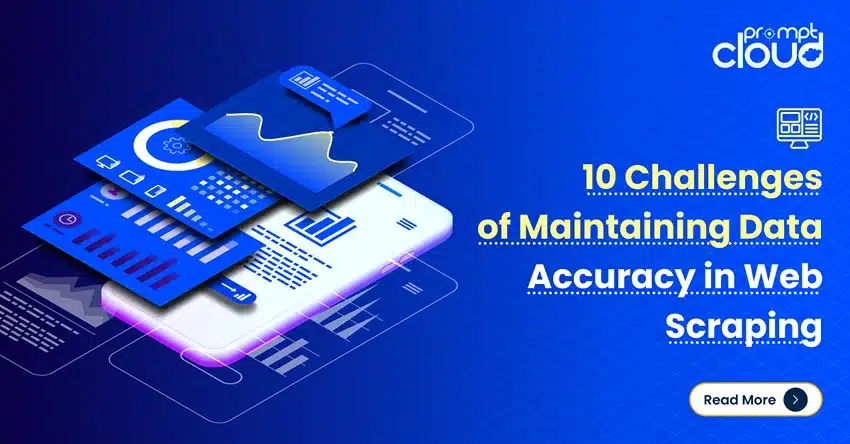
Customer opinions today can make or break a brand, which is why understanding what consumers think has never been more crucial. Businesses need more than just customer surveys or sales reports; they require deep, actionable insights that only comprehensive web data can provide. Sentiment analysis using product review data has emerged as a powerful tool for uncovering these insights, allowing brands to decode customer emotions, preferences, and expectations.
This article explores how leveraging web data from product reviews, Twitter, and other sources can elevate sentiment analysis, offering valuable guidance for marketing analysts, brand strategists, social media teams, and data scientists.
What is Sentiment Analysis?

Image Source: LinkedIn
Sentiment analysis is the process of evaluating text-based data to determine the emotional tone behind it. It helps brands gauge public perception by identifying opinions as positive, negative, or neutral. Businesses use sentiment analysis to:
- Measure customer satisfaction
- Track brand reputation
- Monitor competitor performance
- Enhance marketing strategies
Why Use Product Review Data for Sentiment Analysis?

Product reviews are among the richest sources of customer feedback. They offer detailed insights into customer experiences, from product quality to delivery and customer service. Consumers express their honest opinions, highlighting what they love or dislike about a product, often in great detail.
Businesses can use this feedback to gain a clearer picture of customer expectations and adjust their strategies accordingly. By conducting sentiment analysis on product review data, companies can spot recurring issues, improve product features, and enhance overall customer satisfaction.
How to Conduct Sentiment Analysis Using Product Reviews?

Image Source: Repustate
1. Data Collection
Gather reviews from multiple online platforms such as e-commerce websites, forums, and social media. Web scraping tools like PromptCloud can be used to automate this process efficiently.
2. Data Preprocessing
Clean the data by removing irrelevant information like duplicates, spam, and formatting issues. Preprocessing ensures accurate sentiment classification.
3. Sentiment Classification
Use Natural Language Processing (NLP) algorithms to classify reviews as positive, negative, or neutral. Advanced models can even detect emotions such as anger, happiness, or frustration.
4. Data Analysis & Reporting
Visualize results through dashboards and reports. Identify trends and patterns to support business decisions.
How Sentiment Analysis of Twitter Data Drives Smarter Decisions?

Image Source: Analytixlabs
Twitter is a powerhouse of real-time customer opinions. Analyzing tweets can provide businesses with up-to-the-minute consumer sentiment data on products, services, or even marketing campaigns.
Why Twitter Data Matters?
- Real-Time Insights: Twitter’s fast-paced environment delivers instant public opinions.
- Wide Reach: Millions of tweets offer a broad data pool.
- Trend Tracking: Monitor trending hashtags, keywords, and brand mentions.
How to Conduct Sentiment Analysis on Twitter Data?
- Data Collection: Scrape tweets using Twitter’s API or a web data provider like PromptCloud.
- Hashtag and Keyword Tracking: Focus on relevant hashtags and keywords.
- Sentiment Scoring: Use sentiment analysis models to score tweets based on emotional tone.
- Campaign Performance: Assess marketing campaign effectiveness through tweet analysis.
The Value of Consumer Sentiment Data Across Platforms
Consumer sentiment data goes beyond product reviews and tweets. It includes discussions on forums, blogs, and even news articles. This diverse range of data sources provides a holistic view of how customers perceive a brand or product. For instance, online forums often feature in-depth discussions on specific product features or industry trends.
Blogs can offer expert opinions or reviews, adding another layer of sentiment analysis. By combining data from various sources, businesses can obtain a well-rounded understanding of customer preferences, market trends, and competitor performance. This comprehensive approach can significantly enhance decision-making processes across marketing, product development, and customer service.
Why PromptCloud is the Go-To Data Partner for Sentiment Analysis?
When it comes to sourcing web data for sentiment analysis, accuracy, reliability, and scalability are essential. This is where PromptCloud excels. As a leading web data provider, PromptCloud offers businesses access to a vast range of online sources, including product reviews, social media, and forums. Its data extraction services ensure timely, structured, and clean datasets tailored to specific business needs.
By partnering with PromptCloud, companies can focus on analyzing data and deriving insights, leaving the complexities of data collection and preprocessing to the experts. This enables faster, data-driven decisions that can transform marketing strategies, product development, and customer engagement efforts.
Conclusion
Sentiment analysis has become indispensable for businesses aiming to thrive in today’s competitive landscape. Whether through sentiment analysis using product review data, Twitter sentiment monitoring, or aggregating consumer sentiment from diverse sources, the potential for gaining actionable insights is immense.
Partnering with a reliable web data provider like PromptCloud ensures that the data you analyze is accurate, comprehensive, and ready for immediate use. Elevate your sentiment analysis efforts- schedule a demo today!


















